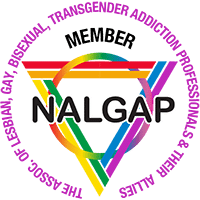Alumni Program for Addiction Recovery, Denver
Stay connected, reinforce your recovery, and thrive in a community committed to lifelong healing and support.
Alumni Program for Addiction in Denver, CO
Recovery is a lifelong pursuit, and at Mile High Recovery Center, our Alumni Program ensures you’re never alone on that path. Designed for individuals who have completed treatment, this program provides a structured way to stay involved, connected, and supported as you continue to strengthen your recovery journey.
We offer more than just follow-up care – we offer community. Through alumni-led meetings, social events, and mentorship opportunities, we help you maintain accountability, develop deeper relationships, and keep the momentum moving forward in a healthy, supportive environment.
What Is an Alumni Program?

An alumni rehab program offers structured, ongoing support for individuals who have completed a treatment program. These programs provide a bridge between intensive care and independent living, helping individuals maintain sobriety, build accountability, and stay connected to a recovery-focused community.
Recovery doesn’t end when treatment does – challenges like stress, isolation, or life transitions can emerge at any stage. Alumni programs offer a protective layer of continued engagement, helping individuals reinforce coping strategies, celebrate progress, and receive support during moments of vulnerability.
At Mile High Recovery Center, our rehab alumni program is more than check-ins. It empowers individuals to remain engaged in their recovery journey. With consistent opportunities to connect, reflect, and grow, alumni find strength in shared experience and confidence in continued progress.
The Benefits of an Alumni Rehab Program
A structured alumni program provides critical ongoing support that enhances the foundation established during treatment.
Key benefits of our alumni program include:
- Stronger relapse prevention through peer connection and support
- Ongoing access to recovery resources and professional guidance
- Deeper personal growth through mentorship and shared experience
- Continued accountability and structure during post-treatment life
- Increased confidence through active recovery engagement
- Opportunities to give back and support others in recovery
- A sense of belonging that combats isolation and stigma
For alumni in recovery, this ongoing support fosters greater emotional resilience, long-term sobriety, and a stronger sense of purpose in everyday life.
Need residential treatment for addiction?
Take the first step towards recovery today.
Our team is ready to help you reclaim your life. Call now!

Why Choose Mile High Recovery Center For Alumni Recovery Support
True recovery lasts a lifetime, and at Mile High Recovery Center, our alumni rehab program ensures former clients remain supported every step of the way. We provide a community where encouragement, growth, and accountability remain central to each person’s journey.
- Supportive & Ongoing: We stay with you after treatment, offering consistent encouragement and care.
- Interactive & Meaningful: We foster real relationships through events, calls, and peer mentorship.
- Accessible & Reliable: Whether it’s a monthly gathering or a one-on-one chat, support is always within reach.
- Purpose-Driven & Engaged: We empower alumni in recovery to lead, contribute, and stay inspired.
Our Denver-based program provides alumni with a place to return, reconnect, and reengage, offering the tools and support necessary to maintain a strong recovery for the long term.
Our Rehab Programs
What We Treat
Colorado Rehab | Real Recovery Stories
Resources
- https://pmc.ncbi.nlm.nih.gov/articles/PMC11906603/
- https://www.researchgate.net/publication/332459950_The_alumni_club_interpersonal_contact_and_the_exchange_of_recovery_oriented_helping_in_a_sample_of_former_residents_of_a_therapeutic_community_for_women
- https://substanceabusepolicy.biomedcentral.com/articles/10.1186/s13011-021-00371-0
- https://onlinelibrary.wiley.com/doi/epdf/10.1002/oti.257


Reach Out Today to See How Mile High Recovery Center Can Help You Heal
If you or a loved one are ready to regain autonomy over your lives and well-being, recovery starts here. Let us guide you toward sustainable wellness and sobriety through our personalized treatment plans tailored to your unique needs and experiences. We look forward to hearing from you!


